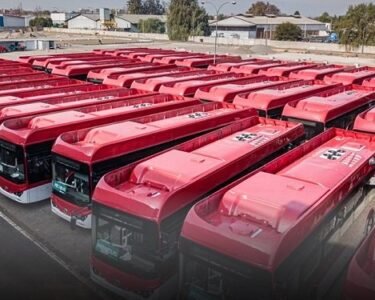In a move aimed at mitigating operational losses, the Khyber Pakhtunkhwa Urban Mobility Authority (KPUMA) has announced a Rs 10 per-stop fare hike for the Peshawar Bus Rapid Transit (BRT) system. The revised fare structure will take effect from July 1, 2025, and is expected to affect thousands of daily commuters who rely on the service.
Reason Behind the Fare Hike
According to an official statement from the KP Transport Department, the fare adjustment has been necessitated by rising inflation, coupled with the financial challenges faced by the BRT project. Officials stated that the fare hike aims to offset mounting operational costs and ensure the long-term financial sustainability of the BRT system, which was launched in 2020 as a flagship public transportation initiative.
“In light of persistent inflationary trends and operational deficits, we’ve had to make this difficult decision,” said a KPUMA spokesperson.
Public Reaction and Wider Context
The decision comes amid growing concerns over the rising cost of living in Pakistan and is expected to generate mixed reactions among commuters. Many daily passengers view the BRT system as an affordable and efficient transport solution, and a sudden fare increase could strain household budgets.
The fare hike follows a similar yet controversial attempt by the Capital Development Authority (CDA) earlier this month to raise fares on Islamabad’s metro and electric buses. That increase was met with public outcry and reversed after commuters and advocacy groups demanded a rollback.
In contrast, KPUMA has moved ahead with its decision, justifying it as critical to maintaining service quality and expanding BRT infrastructure. While no reversal has been indicated yet, the public response in Peshawar remains to be seen.
Implications for BRT Users
For regular BRT users, the Rs 10 increase per stop could translate into a notable rise in monthly commuting costs, particularly for low-income workers and students. However, officials argue that no alternative was viable without risking service disruption or degradation in service standards.
As Pakistan grapples with inflation and fiscal tightening, public transport systems like BRT are under increasing financial strain. The Peshawar BRT fare hike is a reflection of these broader challenges. Whether the increase leads to a backlash or acceptance will depend on how effectively the government communicates the necessity — and whether service standards continue to justify the cost.
Disclaimer:
This article is based on publicly available statements from the Khyber Pakhtunkhwa Transport Department. Fare structures and policies are subject to change at the discretion of government authorities. Commuters are advised to check official sources for the most up-to-date information.






